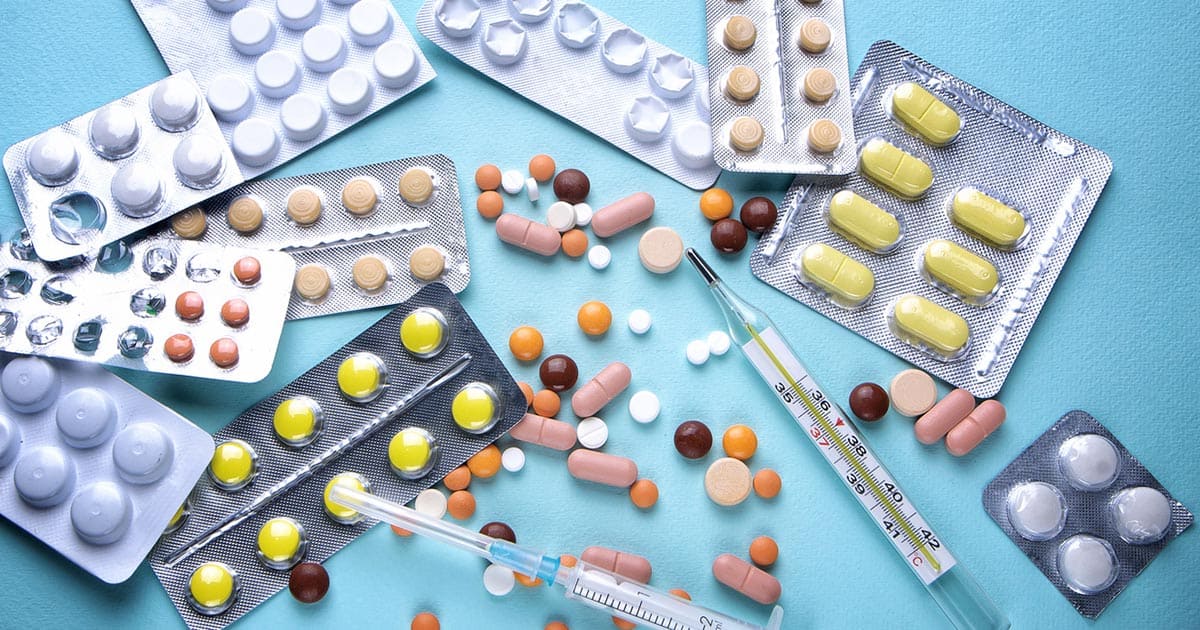Corticosteroids, or steroids for short, are a common medication prescribed for a multitude of ailments, but can often cause blood sugar issues for people living with diabetes.
If you’ve ever been prescribed a steroid, you may know that they spike blood sugars easily and quickly, and can lead to stubborn hyperglycemia for days on end.
In this article, I will describe exactly how steroids affect blood sugar and what you can do about it.
At the end of the article, I will also describe the rare situation where steroid therapy may actually cause type 2 diabetes by triggering a complication called “steroid-induced diabetes”.

Table of Contents
- What would a doctor prescribe steroids for?
- How are steroids used?
- What are the side effects of steroids?
- How do steroids affect blood sugar?
- When do steroids start to affect blood sugar?
- What to do when you start steroid therapy
- What to do when you stop steroid therapy
- What is steroid-induced diabetes?
- Symptoms of steroid-induced diabetes
What would a doctor prescribe steroids for?
Doctors prescribe steroids for many issues, including but not limited to treating the inflammation and pain associated with rheumatoid arthritis, lupus, asthma, and common allergies.
In more serious cases, steroids help treat Addison’s disease, when the body lacks the ability to produce corticosteroid, that the body needs for proper functioning.
Steroids are also used to suppress the immune system to prevent organ rejection in transplant recipients.
How are steroids used?
There are many different ways one can take steroids. The most common is by mouth in the form of tablets, capsules, or syrups. Steroids can also be ingested via an inhaler or intranasal spray, most commonly to help alleviate asthma attacks or inflammation from seasonal allergies.
Steroids can also be applied topically in the form of creams and ointments to help heal skin conditions.
Finally, steroids administered by injection are the most common way to treat pain and inflammation people may experience when they suffer from tendonitis.
What are the side effects of steroids?
The side effects of steroid use vary based on type, dose, and duration of treatment.
According to the Mayo Clinic, side effects of oral steroids include:
- Glaucoma
- Fluid retention
- High blood pressure
- Mood swings
- Confusion and memory loss
- Weight gain
When taking oral steroids longer term, you may experience:
- Cataracts
- High blood sugar or trigger steroid-induced diabetes
- Increased risk of infections
- Osteoporosis
- Slow wound healing
- Severe fatigue
- Loss of appetite
- Nausea and muscle weakness
Side effects of inhaled steroids include:
- Oral thrush
- Hoarseness
If you gargle and rinse your mouth after inhaling steroids, you may avoid mouth and throat irritation.
Side effects of topical steroids include:
- Thinning of the skin
- Red skin lesions
- Acne
Side effects of injected steroids include:
- Thinning of the skin at the injection site
- Pain at the injection site
- Facial flushing
- Insomnia
- High blood sugar
Doctors usually limit injections to three or four per year, depending on the patient.
How do steroids affect blood sugar?
If you’re prescribed steroids (such as prednisone) and live with diabetes, you will notice that your blood sugars may increase as a result (this happens in people both with and without diabetes).
If you’re prescribed a steroid treatment, make sure the doctor knows you have diabetes. Doctors may sometimes be able to prescribe a different drug that does not interfere with blood sugar levels.
Steroids suppress the effectiveness of insulin, causing insulin resistance, and make the liver release stored glucose into the bloodstream.
The combination of these two actions can make blood sugars much harder to manage while taking steroids, resulting in higher blood sugars levels, and much more insulin is required to manage diabetes as a result.
When do steroids start to affect blood sugar?
Steroids may start to affect your blood sugar pretty quickly after starting treatment, although it depends on what course of treatment you’re on.
For oral steroids, blood sugars may begin to rise within a few days of treatment. The effects will depend on the dose and type of steroid you are taking.
Steroid injections start to affect blood sugars soon after the injection and can remain high for 3-10 days afterward.
If you’re taking topical steroid creams or gels or inhaled steroids, they do not typically affect blood sugar levels.
What to do when you start steroid therapy
If you need to take steroids for any ailment, tell your prescribing physician that you have insulin-dependent diabetes. Speak with your doctor for any advice they may have for controlling your blood sugars while on steroid medication.
It’s helpful to also ask for an information sheet about the medication you’re taking, to learn more.
Some other strategies to manage steroid therapy with diabetes include:
- Speak with your prescribing physician about whether your insulin (or other diabetes medication) needs to be adjusted while you are on steroids
- Call your endocrinologist and let them know you’re on steroid treatment; seek advice for managing blood sugar levels while you’re on steroid therapy.
- Check your blood sugar more often than usual
- Closely monitor for ketones. Any blood sugar over 250 mg/dL with moderate to high ketones will require a call to your doctor or visit with your urgent care clinic
- If you’re experiencing signs and symptoms of DKA, seek immediate medical care or call 911
- Carry extra low blood sugar snacks with you at all times; your blood sugar may drop suddenly while on steroid treatment
- Wear a medic alert bracelet at all times
- Make a plan for increased insulin needs (make sure to stock up on insulin and all CGM and insulin pump supplies)
- Continue to follow your regular eating plan and aim for regular physical activity (have plenty of lower carbohydrate snacks and meals on hand and make a plan for exercise to help mitigate higher blood sugars)
What to do when you stop steroid therapy
It’s important to know what to do when you stop steroid therapy, to avoid negative health consequences, especially when managing diabetes.
Some strategies to help when stopping steroid therapy include:
- Work with your endocrinologist about tapering off the amount of insulin you’re taking each day to reflect tapering down your steroid use (this is crucial to avoid potentially dangerous hypoglycemia)
- Make sure you don’t immediately stop taking your steroid therapy; work with your prescribing physician to taper your medication. Abruptly stopping steroid therapy can make you very sick.
- Make sure you check your blood sugars more often than normal while tapering steroid therapy
- Carry extra low-snacks, as fluctuation in blood sugars is common while tapering other medications
- If your blood sugar remains high for more than 2 or 3 days after stopping steroid therapy, contact your doctor immediately
What is steroid-induced diabetes?
People who are at higher risk for developing type 2 diabetes and are on long term (more than 3 months) steroid therapy may trigger a complication called steroid-induced diabetes.
There has been much debate in the medical field as to whether steroids are a cause for diabetes or whether steroids advance the development of existing type 2 diabetes in patients.
A study published in 2012, at the University of Sydney, found that those who developed new-onset steroid-induced diabetes had lower risk profiles than is typical of people with type 2 diabetes, implying that steroid therapy played a role in the development of the disease.
High blood glucose levels while taking steroids may subside after you stop taking the medication. However, some people may develop type 2 diabetes which will need to be managed for life.
Symptoms of steroid-induced diabetes
Speak with your doctor immediately if you experience any of the following symptoms while on long-term steroid use, which can be a sign of steroid-induced diabetes:
- Dry mouth
- Extreme thirst
- Fatigue
- Unintentional weight loss
- Frequent urination
- Blurred vision
- Nausea and vomiting
- Dry, itchy skin
- Tingling/loss of feeling in the hands and/or feet
Steroid therapy may cause a range of side effects, which can be particularly troublesome for people living with diabetes.
They also relieve the inflammation, pain, and discomfort of many different ailments and conditions.
Work with your doctor to make choices that minimize high blood sugars, and you can reap the benefits of steroid treatment with a reduced risk of significant complications.




M.K. Lewallen
Received a cortisone shot on 5/18/23 for a shoulder injury despite telling the ortho doctor that I was a Type I diabetic. Until that shot blood sugars normally ran 60-120 and now they’re consistently 225-311, along with a lack of sleep, shorter temper and constant nausea. Even raising my Lantus by 2 units (to see if that’d bring the numbers back to at least the upper 100’s range) in the morning the past two days has only lowered it into the 120-150 range from breakfast until dinner, and after dinner the numbers start increasing rapidly. My doctor has basically told me to just let it ride for basically another week, don’t make any med changes, and if the numbers are still high, then they’ll do something.
Cal
I was diagnosed first with pneumonia and then RSV then Sinusitis. Was prescribed antibiotics and steroids on and off for 3 months. I have been off steroids for about 5 weeks. I had blood work today and my A1C doubled? and sugar jumped to 300. Could the steroids still cause this spike even though I am off of them?
Christel Oerum
Since A1c is a reflection of your average blood sugars for the last 3 months, the steroids could very well have impacted your A1c level, even if it hasn’t been impacting your blood sugars for the last 5 weeks. There shouldn’t be any permanent impact, but it’s worth keeping an eye on and discussing with your doctor
Matty
I was given a 10 day course of steroids in December when I got covid. I never had any respiratory issues, nor was I even close to being hospitalized. I did receive the antibodies. I never did check my sugars during that time but my vision was like I had vaseline smeared on my eyes. My sugars are still high for me.. I am usually around 70-80 and now they are 120-130 at the highest and occasionally I will have a 70. I do not eat carbs and I fluctuate from a heavy protein day to an almost 24 hour fasting day. How long will this last? My dr. allowed me to stop taking ozempic this month and we upped my glipizide to 5mg twice a day… Thoughts?
Christel Oerum
That’s rough, I’m sorry you’re going through this. I don’t think the medical community has a good grasp on how long the effects of Covid will linger so it’s hard to tell. It sounds like your doctor is working on titrating your medication to balance you out but after a week of taking it, you should have a good idea of whether it’s the right amount for you. I would let your doctor know that your vision is impacted and how you feel.
Matty
Thank you, although I don’t believe my blood sugar and use of the steroid would be considered a lingering effect of covid. Especially since I have nothing else going on. My eyesight is back to normal, and it took about 3 days for it to come back to normal after I stopped taking the steroid (it was a miserable 10 days for sure). My Dr. knew about the change in my eyesight during the time I was on steroids and knows it is back to normal. I had a complete blood count done a week before I came down with covid. My A1c was 6.9 and the rest of my numbers were great, due to the vitamin regimen I am on. I am only wondering how long the steroids might affect my blood sugars .. will it be months? Or does is vary by person? I have never been on a steroid, and I can’t find information on how long it could affect my sugars.
Ella
Started taking steroids few days ago for immune suppression; T2 DM and taking 3 different medications. Sugars not doing well, with fasting at 13mmol/L and rising up to 29mmol/L in the day!
Any tips on what to do before my review in a week?
Thanks
Christel Oerum
Yeah, steroids will do that to you. It can be quite frustrating but unfortunately, there’s not much you can do if you don’t manage with insulin aside from trying to walk/move a lot, and drink plenty of water. Once you’re off the steroids your blood sugars should start coming down again
Ida Gadsden
My. blood sugar has been up for 2 months after steroid shot for chronic knee pain,it happened last time a had a shot also.What can I do.My sugars range from 200-over300 it is very scary!
Christel Oerum
If you’re that high consistently I’d suggest you contact your doctor. You might need a bit more or different medication to deal with that. You can also try adding more activity to try and drive the blood sugars down, but I’m not sure it will help you enough
Don Sanders
I had a steroid injection for back pain and my blood sugar levels rose from 90 to 150
Kim
I just had 4 shots of cortisone — two in each foot. My BS rose to 322. My basal is at 200%. Should be a wild MDW. :/
Christel Oerum
Oh boy. I’m sorry, but hopefully the shots helps you get back on your feet 😉